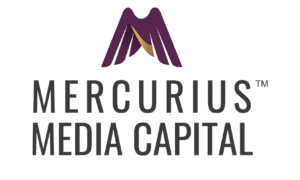Raising money to cover your startup-costs and scale-up can be a drawn-out process. Particularly when it comes to choosing the best funding method. Businesses need finance for a variety of different reasons. From scaling up to accessing resources; a business’s goal, in part, helps to determine the most appropriate method of raising capital. Crowdfunding and Venture Capital are amongst the most popular sources of finance for startups. Let’s take a look at how they compare and with what caution they should be pursued.
Crowdfunding: Is it for you?
Reaching out to the wider population for pledges, rather than a centralised bank or individual, crowdfunding ultimately finances a business by collecting a larger number of smaller donations from many individuals. There are four types of crowdfunding which effectively set out the terms for making a pledge.
- Reward crowdfunding – people are incentivized to donate for a reward, like a free product or early access to a service. Kickstarter or Indiegogo are sites to find different projects to donate.
- Equity crowdfunding – Investors provide funds in return for equity or ownership in the company.
- Debt-based crowdfunding – peer-to-peer lending where individuals lend money and expect to be repaid with interest added.
- Donation-based crowdfunding – Similar to reward crowdfunding, but donors receive nothing in return.
Many startups assume crowdfunding to be the perfect source of capital. Indeed, funds raised through this method grew by 33.7% in 2019, and successful campaigns raised $26,656 on average. But before you dive into profiling your project, securing supporters and collecting funds; it’s important to understand the advantages and disadvantages of crowdfunding to save time, energy, money and disappointment.
Advantages of crowdfunding
It’s so easy and accessible. You don’t have to worry about jumping through financial hoops like with a bank or individual investor. Funding your startup could potentially be as simple as posting the details of your project on a site like Kickstarter.
You may find so many people are eager to fund your venture, but what’s more exciting with this method, is that it gives you access to initial feedback on your startup. Ask for advice, opinions, network and get feedback on your product or service in your earliest days and way ahead of any future rounds of funding.
Crowdfunding is an excellent way to test the market value of your startup and gauge interest in your product or service. With market-validation comes a higher interest in investors later down the line.
Disadvantages of crowdfunding
Ultimately, there’s no guarantee that your startup will gain enough traction amongst the public to raise capital. Crowdfunding sites are competitive places and your startup has to prove to have potential to attract donors. Whilst alternative methods of financing are also not guaranteed, lending institutions might provide a quicker response.
As with all startups, you’ll probably need more than a single round of funding. Crowdfunding is often a one-time round. Even if it’s successful and your goals are met, startups may not be able to raise more funds using this method.
Could Venture Capital be for you?
Venture Capitalists provide capital to startups in exchange for equity. They can provide multiple rounds of investment and can often assist with business plan development, product testing, consulting and other areas of growth. Striking a deal with a VC can see your startup hit its growth targets sooner than expected.
Advantages of Venture Capital
Striking a deal with a VC means more than getting your hands on some cash. In addition to this, take advantage of your VC’s connections and network to build a more compelling business. A venture capitalist will also invest in an industry with which they’re familiar or even experts. They’ll guide your business through to its next level and beyond.
It’s in the financial interest of a venture capitalist to nurture the business they invest in. They will use their resources and connections to grow a business and take it to a national level. At this point, and provided expectations are met, many VCs will have no qualms about investing in the next round of funding.
Disadvantages of Venture Capital
Unlike some types of crowdfunding, donor-based crowdfunding, for example, strings are attached to VC. These conditions could become overbearing in some circumstances. Startups risk losing a significant portion of control in the company. They may also find themselves in compromising situations with regards to the VCs conditions. Funds could be withheld for some time, and as the main backer of a company, what the VC says, often goes.
With these points in mind, it’s important to remember that both crowdfunding and venture capital fundraising are powerful ways to find capital for your startup. Make your decision depending on where you are in your business’s lifecycle.
A relatively small and new startup in the earliest days of its life may be seeking pre-seed or deed funds to get the business idea off the ground. In such cases, crowdfunding can provide the funds as well as feedback into whether you should pursue this venture in the first place.
For startups who have established a profitable business model, looking to enter into a new market, develop a new product or simply scale up; venture capital is a viable option given its combination of funds and expertise in a given industry.
If you are still unsure about choosing between crowdfunding or venture capital, you can apply to raise capital on Einvestment. It allows investors to set their valuation and provides the guidelines to users for ensuring high return investments.
Currently, the industries are matured, the most important factor is how the company shows its performance to the public. Luckily, Einvestment, an online investment platform, has high return investment options.



































